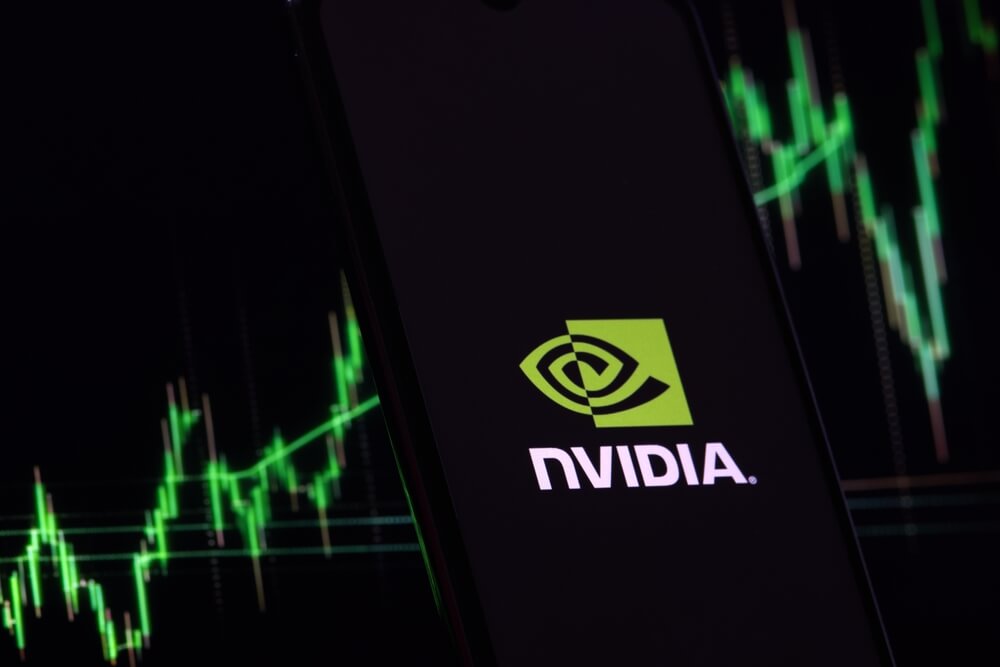
Nvidia Shares Drop 5% Amid New AI Chip Rivals
Quick Look
- Nvidia’s shares fell by five per cent amid announcements from Intel and Alphabet about new AI chips.
- Intel’s Gaudi three chip claims to outperform Nvidia’s H100 by fifty per cent and is 40% more energy-efficient.
- Alphabet’s Axion chip aims to reduce reliance on Nvidia, expanding the market rather than competing.
- Despite challenges, Nvidia’s AI software expertise could maintain its market dominance.
- The AI chip market dynamics underscore the fast-paced technological innovation and competition.
In a significant development that sent shockwaves through the stock market, Nvidia’s shares took a hit, tumbling as much as five per cent on Tuesday. This decline came in the wake of announcements from formidable competitors in the AI chip sector, unveiling breakthroughs that could potentially reshape the competitive landscape.
Intel’s Gaudi 3: A New Challenger Emerges
Intel, a household name in the semiconductor industry, has thrown down the gauntlet with its latest offering, the Gaudi three AI chip. Revealed with much fanfare, the Gaudi Three positions itself as a direct rival to Nvidia’s H100 AI chips, the powerhouse behind Nvidia’s recent financial triumphs. Intel’s bold claims about Gaudi Three’s capabilities have set the stage for a heated battle for market dominance. The new chip is touted to outperform Nvidia’s H100 by a staggering fifty per cent in inference performance while being 40% more energy-efficient. Furthermore, Intel’s strategy includes undercutting Nvidia on price, promising a significantly lower cost for the Gaudi three.
Despite the Gaudi three’s impressive specs, questions linger about its competitiveness against Nvidia’s next-gen Blackwell chip, the much-anticipated successor to the H100. Nonetheless, Intel has already secured partnerships with major players like Dell, HPE, and Supermicro, aiming for a Q2 release. This signals a robust market entry strategy.
Alphabet Enters the Fray and Nvidia’s Resilience
Adding to the intensity of the competition, Alphabet has announced its venture into the chipmaking sphere. The company introduced the Axion chip, designed to bolster Google’s data analysis capabilities. Furthermore, this move aims to lessen its dependence on Nvidia. Some view this move as a direct challenge to Nvidia’s dominance. However, Google’s leadership portrays it as an opportunity to expand the market rather than a confrontation.
Nvidia, despite the mounting competition, is not without its strengths. Industry experts highlight Nvidia’s superiority in AI-related software as a critical differentiator that could maintain its edge in the market. Nvidia’s deep expertise and established presence in the AI chip sector may well cushion the impact of new entrants.
Market Reactions and Nvidia’s Path Forward
The broader market showed mixed reactions amidst these developments. Specifically, the Dow Jones, S&P 500, and Nasdaq each experienced varied fortunes. This semiconductor showdown, particularly Nvidia’s dip, underscores the volatile nature of the tech sector, which is heavily influenced by innovation, competition, and investor sentiment.
As Nvidia braces for increased rivalry, its strategic focus becomes even more crucial. The company is turning its attention to next-generation chips like the Blackwell and leveraging its unparalleled software ecosystem, which could be pivotal. Additionally, the evolving dynamics in the AI chip market highlight the relentless pace of technological advancement and the perpetual quest for supremacy among industry giants. Consequently, Nvidia’s journey ahead, as it navigates these competitive waters, will be closely watched by investors and tech enthusiasts alike.




